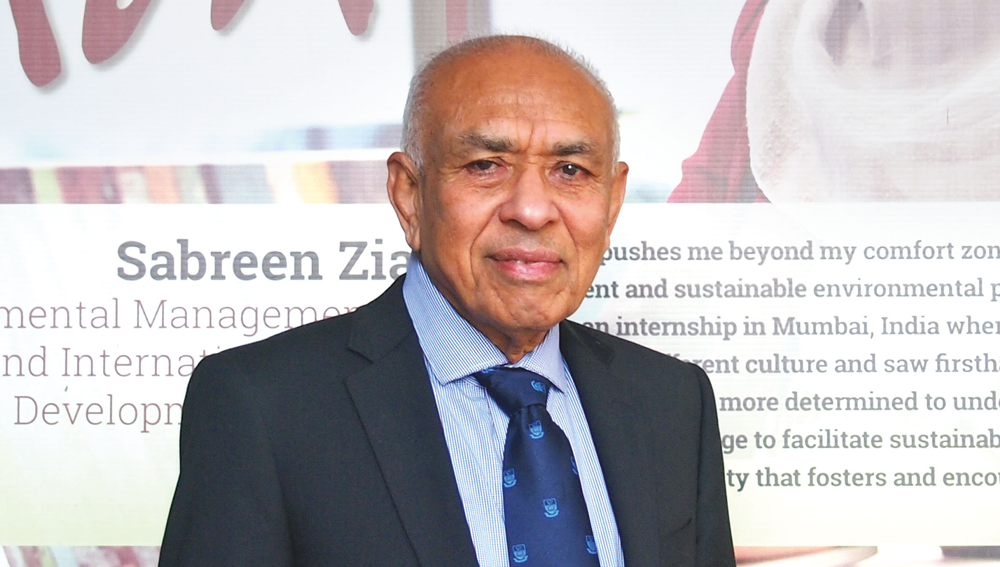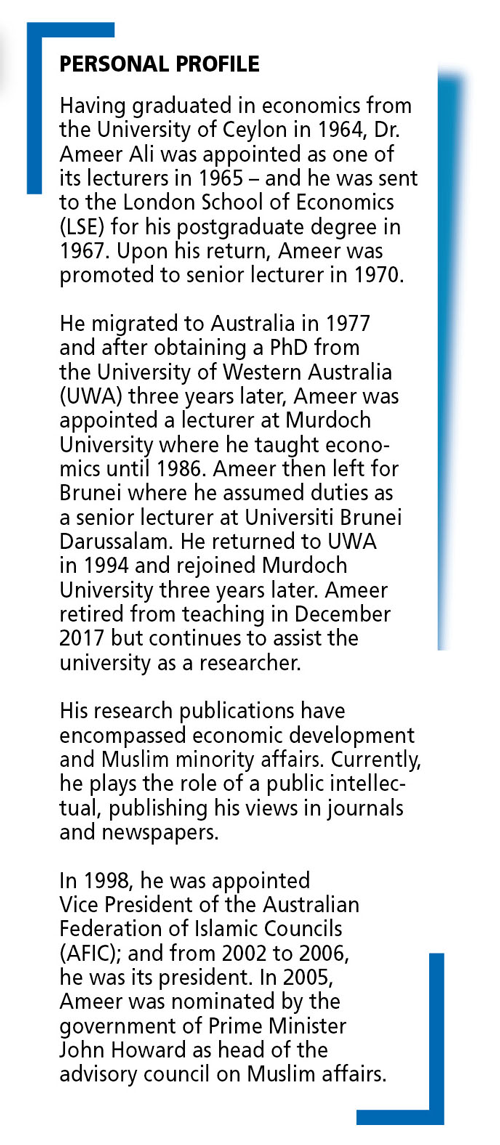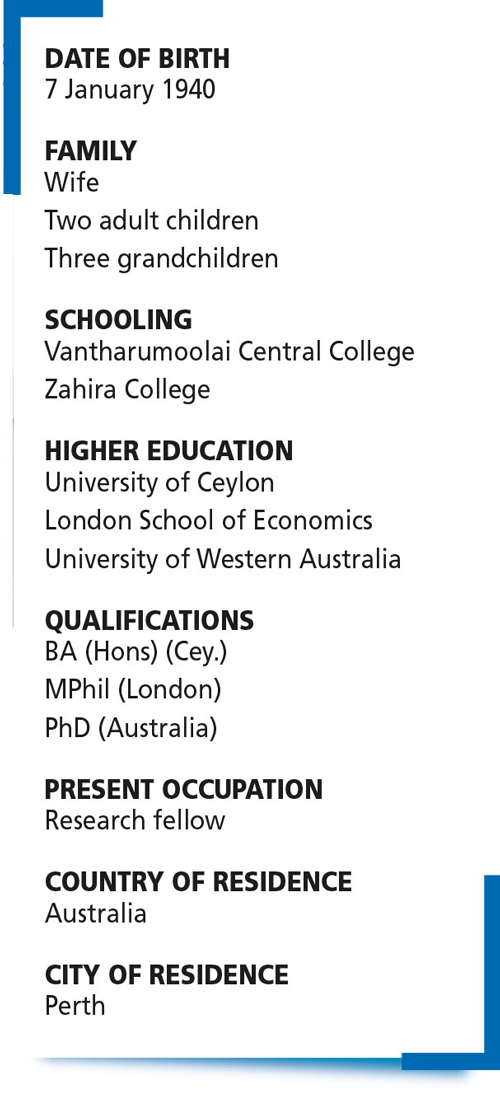SRI LANKANS OVERSEAS
THE EVIL WITHIN
Dr. Ameer Ali denounces the emergence of ethno-nationalism
Q: How do you perceive Sri Lanka today in terms of progress or a lack thereof?
A: Since I left the country in the late 1970s, the economy has developed in leaps and bounds. Infrastructure development has been impressive and Colombo’s skyline has changed dramatically.
At the same time, cities have become overcrowded, the gap between the rich and poor has widened, and the cost of living has skyrocketed. The so-called ‘trickle-down effect’ of economic liberalism has not eventuated. In spite of foreign exchange remittances, many families are finding it difficult to make ends meet. In short, there has been growth without equity. Politically, the tradition of participatory democracy remains proudly protected although party politics has deteriorated into a contest between families and personalities rather than policies.
Q: And how do compatriots in your country of domicile view Sri Lanka?
A: They all love the beauty of the island and it is a favourite destination for holidaying. Sri Lankan hospitality and its delicious cuisine is a popular topic of conversation at social gatherings. Sri Lanka’s love of cricket is greatly appreciated by sport loving Australians.
However, the fact that reconciliation after the civil war has not progressed disappoints them. They view communal politics as being the bane of the country’s democracy.
Q: What were your impressions of Sri Lanka on your last visit and how much has it changed from the past?
A: I have visited Sri Lanka almost every year since 2014. One thing that has shocked me is the increasing politicisation of Buddhism, and spread of other fundamentalist religious ideologies among Muslims and Hindus. Despite being known historically for its splendid cosmopolitanism, Sri Lanka is slowly and regrettably giving way to religious parochialism.
There is also increasing lawlessness and a failure of the rule of law. Corruption has become a pandemic and drug addiction is widespread.
Q: From afar, how do you perceive news about your country of birth?
A: Commercial media always looks for sensational news. All that we hear about Sri Lanka is with respect to natural disasters, human tragedies and national agonies. However, since technology has revolutionised communication, we can discern the real truth through social media.
Q: How do you view the brain drain and why is there still no reversal of it, in your opinion?
A: If any country throws brains into the drains, it cannot escape a brain drain! Actually, the failure to recognise and reward talent has caused this phenomenon in Sri Lanka. Otherwise, how does one explain the phenomenal success of Sri Lankan professionals, intellectuals and entrepreneurs outside the country more than when they were inside it?
When appointments for responsible positions are decided by pedigrees and political affiliations rather than by degrees and experience, the only way out for talented people is to migrate. Brain drain is systemic; and unless there is systemic change, it cannot be reversed.
It is a tragedy that brainy Sri Lankans who are the products of the country’s free education system are now benefitting not their motherland but their respective lands of domicile.
Q: What should Sri Lanka focus on most in the coming decade?
A: Speeding up the process of reconciliation, eradicating corruption, abolishing communal politics and allowing the market to operate with a human face.
Q: And what are your hopes for the country in the next decade or so?
A: This country has been a blessed land for millennia. Sri Lankans are by nature skilled, tolerant and hospitable. Its current failures are totally human made.
If the country can sort out the failings of its democracy, achieve communal amity and reform its economic agenda, it can certainly improve its international image and reach impressive economic heights.









Leave a comment